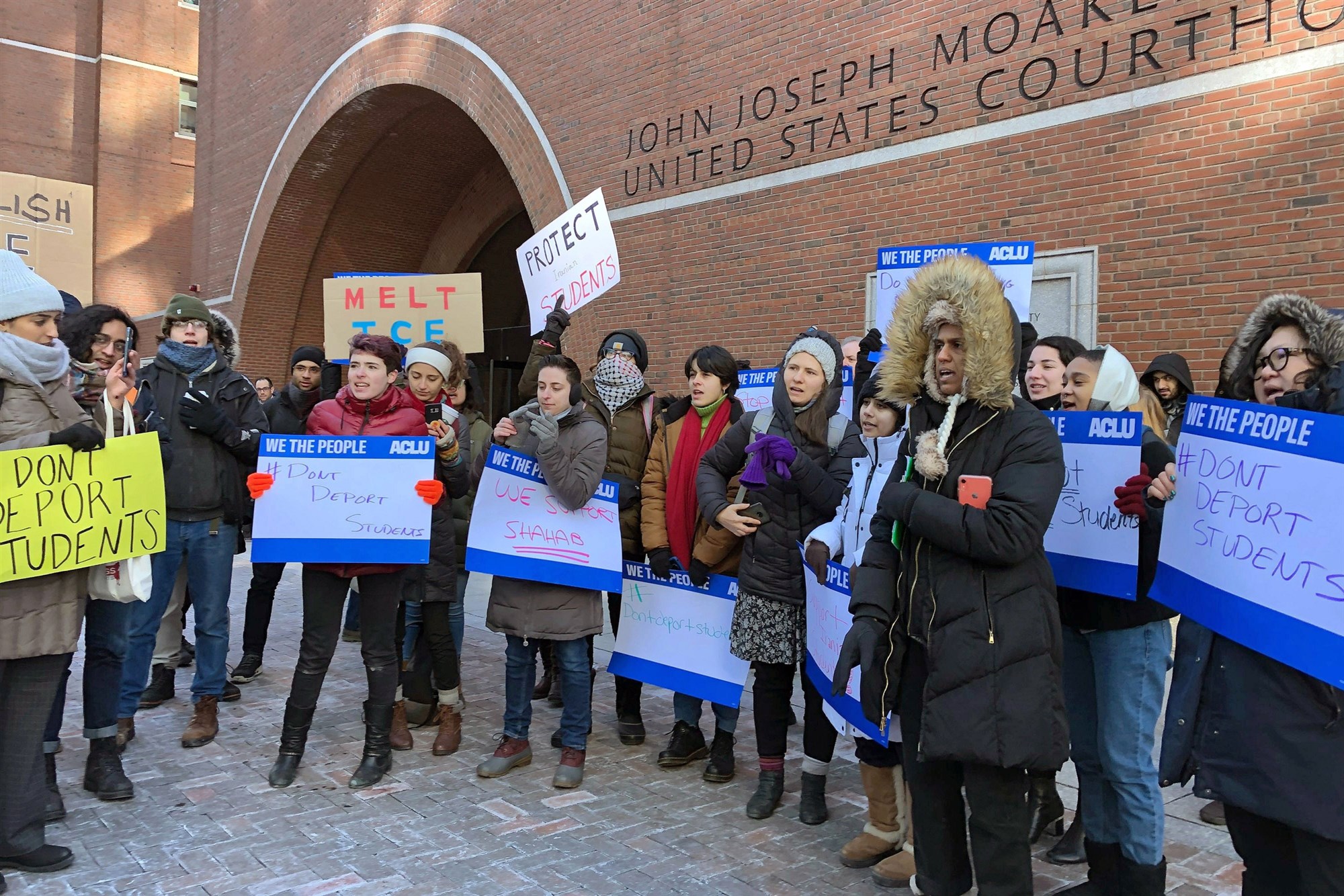
WASHINGTON (Reuters) — U.S. immigration officials on Monday deported an Iranian student headed to a Boston university despite efforts by the American Civil Liberties Union and other advocates to block the removal.
The deportation of Mohammad Shahab Dehghani Hossein Abadi, a 24-year-old Iranian citizen enrolled at Northeastern University, comes after U.S. Customs and Border Protection (CBP) announced an “enhanced security posture” amid heightened tensions with Iran.
The case had raised new questions about fair treatment of Iranians by immigration authorities under the administration of U.S. President Donald Trump. Massachusetts Senator Elizabeth Warren, a leading Democratic presidential candidate, called on CBP to halt Abadi’s deportation on Monday night and vowed to fight Trump’s “xenophobic policies.”
Boston-based attorney Kerry Doyle, who took on the case along with attorneys from two other private firms and the ACLU, said Abadi shared immigration paperwork electronically that showed he had been denied entry due to a concern that he would remain in the United States beyond the scope of his student visa.
An official with the Department of Homeland Security said that charge was a “catch all” reason used to deny entrants. The official, who requested anonymity to discuss the case, said border authorities were concerned that Abadi had immediate family members with business ties to Hezbollah, a heavily armed group designated as a terrorist organization by the United States.
Doyle rejected that allegation and said a summary of Abadi’s interview with border authorities suggested confusion over his father’s identity.
“It appeared that there was someone with a similar name or there was some mix-up,” she said.
Boston-based U.S. District Judge Allison Burroughs halted Abadi’s removal on Monday for 48 hours after an emergency petition filed by the ACLU. The DHS official said Abadi already had boarded a flight to leave the United States at that point.
Carol Rose, executive director at the ACLU of Massachusetts, argued in a statement on Tuesday that border authorities could have stopped the removal, but “defied a federal court order and deported Shahab without due process.”
Whether CBP officials could have retrieved Abadi from the flight on Monday evening remained unclear.
A second Boston-based federal judge, U.S. District Judge Richard Stearns, said during a hearing on Tuesday that the challenge to Abadi’s detention was moot since he had been removed from the country, according to the ACLU and the DHS official.
VISA CANCELED
Abadi was granted a U.S. student visa approximately one week ago, but had that visa canceled following his arrival at Boston Logan International Airport on Sunday, according to court documents.
Following the Jan. 3 U.S. military strike in Iraq that killed the top Iranian general, Qassem Soleimani, dozens of Iranian Americans with U.S. citizenship or lawful permanent residency were detained by U.S. immigration officials at a border crossing in Washington state.
Local advocacy organizations criticized the detentions – which they said stretched to 12 hours – as unusual and troubling.
CBP said in a Jan. 10 statement that it was operating with an “enhanced security posture” amid tensions with Iran. That came after retaliatory Iranian strikes on bases housing U.S. forces.
The ACLU of Massachusetts said that at least 10 Iranian students had been denied entry at U.S. airports since August 2019, with seven of those denials occurring at Logan International Airport.
Reporting by Ted Hesson; Additional reporting by Kristina Cooke; Editing by Mary Milliken and Cynthia Osterman
Image: Protesters outside the federal courthouse where a hearing was scheduled Tuesday for Northeastern University student Shahab Dehghani Hossein Abadi, who was deported to Iran. (The Associated Press)




